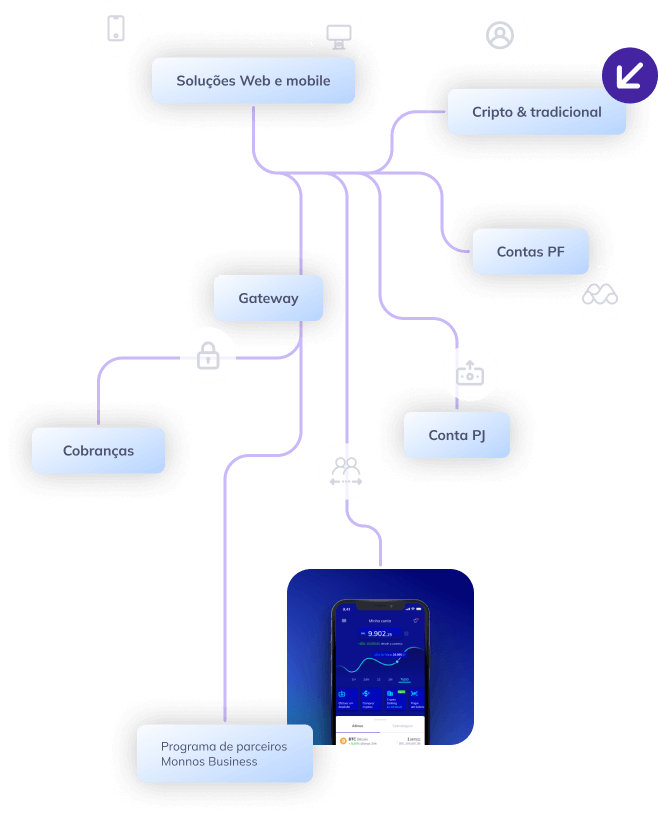
Escaneie com
a câmera do seu celular
Nós somos o atalho para digitalizar sua empresa e posicioná-lo estrategicamente junto às inovações do mercado financeiro.
Uma empresa investida pela

Disponibilize pagamento via PIX para os seus clientes em seu website ou balcão (QR Code).
Aceite as principais criptomoedas como forma de pagamento no seu negócio via QR Code ou no seu website.
Engaje a sua base através de colecionáveis. Crie programas de fidelidade, gamificação e muito mais.
Seu usuário comprando e vendendo criptomoedas diretamente de sua solução e com sua logo.
Permita que seu usuário compre e venda seu token trocando por qualquer ativo diretamente seu website.
Seu usuário recebendo cashback com qualquer ativo, cripto e/ou reais.
Soluções que ajudam varejistas a acelerar a inovação
Acelere a inovação, escale com confiança e proporcione agilidade com soluções para ERP.
Um portfólio completo de soluções para ajudar a indústria financeira a desenvolver novas soluções, garantindo uma gama de serviços aos seus clientes.
Seu e-commerce aderido a demanda de um novo público.
Oferecemos portfólio completo de soluções que abrangem contas a receber e a pagar.
Com as nossas soluções e infraestrutura, sua empresa poderá imergir na Web3 de maneira simples, sem ter que começar tudo do zero. O futuro da sua empresa nessa nova fase da internet será decidido por você, nós seremos o atalho.